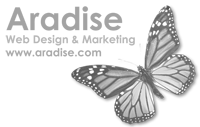IABES Ethical Guidelines
Members of IABES will commit to common rules and practices to improve and strengthen the wellness of industry participants and the welfare of the livestock and environments in which they live.
IABES mission is to protect wild butterflies and their habitats by promoting sustainable butterfly exhibits and their suppliers; and supporting conservation, research, and public education.
Members pledge to follow its Ethics Guidelines, as stated below:
- All IABES members pledge to use their exhibits to educate the public about butterflies and other insects and the importance of conserving them and their natural habitats.
- IABES members assure that farming of butterflies used in exhibits shall not endanger any species and that all species displayed were acquired in complete adherence to the domestic and international laws regulating wildlife trade.
- IABES members, whether butterfly farmers, suppliers, or exhibitors, do not introduce exotic species or potential pests, and take precautions accordingly.
- IABES members ensure that their stock (whether caterpillars, pupae, or adult butterflies) is housed and cared for in a humane manner according to the latest scientific understanding of animal welfare, with adequate food and space, under appropriate temperatures and humidity conditions, and hygiene.
- IABES members guarantee that all their stock comes from traceable vendors and via legal transport channels and are willing and able to disclose the source of their butterflies or other insects.
- IABES members comply with all local and international rules and regulations regarding the breeding, transport, trade, and display of butterflies.
- IABES members must comply with all pertinent labor laws. Child labor is explicitly forbidden unless it happens within the family nucleus and does not interfere with schooling.
- Fair trade practices across the entire network of breeders, suppliers and exhibitors will be promoted.
Adherence to these standards will assure credibility with the public and regulatory agencies, reinforce animal and worker safety, guarantee product quality, and strengthen the health of member institutions and the industry.
IABES does not define specific Standard Operating Procedures, construction standards, or protocols which are left to local government entities. IABES does not have legal regulatory authority, and adherence to these guidelines is enforced strictly through self-regulation of individual members and the oversight inherent in the business relationships between suppliers and exhibitors.
Institutions that are unable to comply with or are violating these principles may not become members of IABES, nor will be permitted to sponsor or participate in any events hosted by the association.
October 2022

